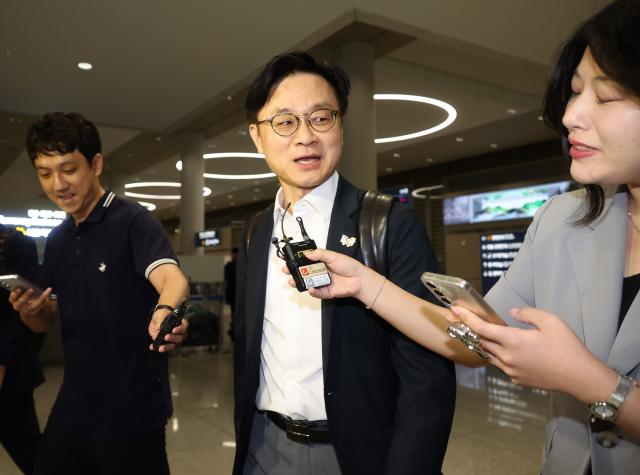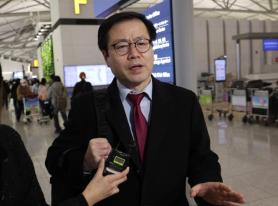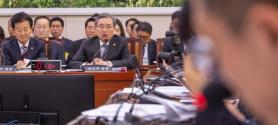
SEOUL, September 14 (AJP) - South Korea's industry minister Kim Jung-kwan returned home on September 14 after meeting U.S. Commerce Secretary Howard Lutnick in New York, but stopped short of saying whether the two sides had narrowed gaps on investment terms linked to their July tariff agreement.
Kim landed at Incheon International Airport early Sunday and brushed off questions from reporters about the outcome of his talks. "Bilateral consultations are still in progress," he said, without elaborating.
The minister had met Lutnick on September 12 local time to discuss the details of South Korea's 350-billion-dollar investment pledge in the United States, which was part of a July 30 deal that cut planned reciprocal tariffs from 25 percent to 15 percent. Neither Seoul nor Washington released any statement after the talks, suggesting key sticking points remain unresolved.
According to officials, South Korea has been pushing to keep direct investment commitments lower by offsetting them with guarantees, while the U.S. side has pressed for a higher share of direct investment. The two governments have also disagreed on who should select investment projects. Washington has insisted on taking the lead, but Seoul wants South Korean companies to decide based on their own business assessments.
Profit-sharing has been another obstacle. Lutnick has pointed to Japan's arrangement with the U.S. as a model, under which revenues are split evenly until Japan recovers its 550-billion-dollar investment, after which the U.S. takes 90 percent of profits. South Korea has resisted the proposal.
When asked if Lutnick demanded the "Japan model," Kim replied, "Rather than saying it was the Japan model, there is already a tariff package in place," sidestepping the question. On whether Seoul might eventually give in to U.S. demands, he said, "The expression that we would accept everything is not appropriate."
Working-level negotiations earlier this month also failed to produce results. South Korean officials from the Ministry of Trade, Industry and Energy and the Ministry of Economy and Finance met U.S. trade negotiators in Washington on September 8, but the talks ended without progress. Kim then flew to the United States on September 11 to personally lead ministerial-level discussions.
Alongside tariffs and investments, U.S. negotiators have asked South Korea to ease non-tariff barriers in areas such as agriculture and digital trade, while Seoul has sought to highlight potential cooperation in shipbuilding.
During his trip, Kim also raised concerns about the detention of 330 South Korean workers in Georgia. The workers were swept up in an immigration raid earlier this year at the Hyundai Motor–LG Energy Solution battery plant construction site. He told U.S. officials that visa issues must be resolved to ensure Korean companies can carry out investments in the United States without facing similar disruptions.
Copyright ⓒ Aju Press All rights reserved.




